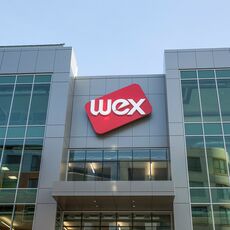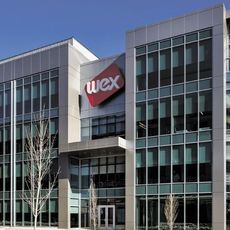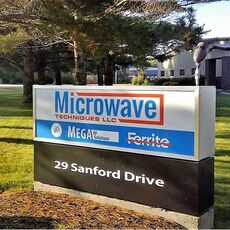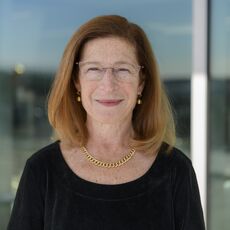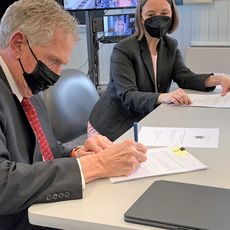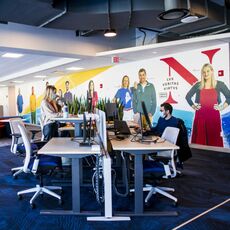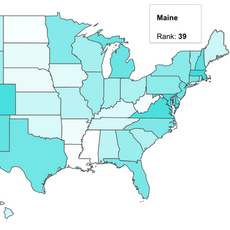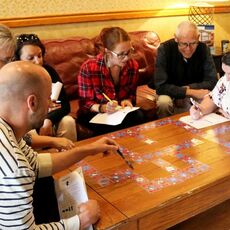Processing Your Payment
Please do not leave this page until complete. This can take a few moments.
Technology
-
WEX posts record Q1 results, raises full-year guidance
Updated: April 28, 2022The company's revenue increase in the first quarter reflects a favorable effect from rising fuel prices.
Updated: April 28, 2022WEX names new CFO on eve of Q1 report
April 26, 2022Jagtar Narula joins WEX from South Carolina-based 3D Systems Corp., where he currently serves as chief financial officer. He will take up the similar role at WEX on May 25.
April 26, 20222 workers sue Gorham tech manufacturer, claiming it broke defense secrecy laws, then retaliated
Updated: April 27, 2022A husband and wife were fired by Microwave Techniques LLC for calling attention to illegal testing of Defense Department equipment, their lawsuit claims.
Updated: April 27, 2022Brunswick fintech startup raises $2M to fund growth
Updated: April 26, 2022Circa, led by CEO and co-founder Leslie Hyman, raised the funds from a combination of individual investors, angel investors and venture capital firms.
Updated: April 26, 2022$40M grant program to help Maine tech companies recover from pandemic
Updated: April 22, 2022The new Pandemic Recovery for an Innovative Maine Economy Fund aims to help technology companies that didn't access other federal pandemic-response economic support programs.
Updated: April 22, 2022After 15 years, Maine chooses a seeming dark horse for new voter registration vendor
Updated: April 20, 2022The state has relied on the same contractor since 2007 for voter registration and election management technology. The newly hired vendor, whose contract could run to 2032, wasn't the first choice.
Updated: April 20, 2022Ukraine war prompts WEX to cut ties with Russian oil conglomerate
Updated: April 4, 2022"As the war has continued, with no foreseeable resolution in sight, we reevaluated our relationship with Lukoil, and have decided to discontinue this relationship," the Portland-based financial technology services provider said in a statement Friday
Updated: April 4, 2022Maine Venture Fund pledges up to $750K for Roux Institute startups
March 30, 2022The state-sponsored VC firm has pledged up to $250,000 annually over the next three years to support startups planning to grow in Maine. MVF also will use the Roux Institute as a Portland co-working office.
March 30, 2022WEX says it remains bullish on long-term results
Updated: March 28, 2022The Portland-based financial technology provider said it expects revenue growth in the range of 8% to 12%, provided foreign exchange rates and fuel prices remain stable over the next five years.
Updated: March 28, 2022TDS Telecom plans fiber expansion to 21,000 rural Maine addresses
March 25, 2022The projects will deliver up to 2-gig internet speeds to residents and businesses. About 21,000 addresses will have access to the fiber network.
March 25, 2022Maine gets low marks for innovation in WalletHub ranking
March 24, 2022The report compared 50 states and the District of Columbia according to human capital and innovation environment.
March 24, 2022Roux Institute tackles neighborhood concerns about proposed campus in Portland
March 23, 2022The Roux Institute has a bold, 20-year plan to create a new education and research center and business incubator on the site of the former B&M Baked Bean factory. Not everyone is pleased about the project, however.
March 23, 2022Ask ACE: With so much marketing innovation out there, what do I do?
Updated: July 22, 2022A contributor from the Association for Consulting Expertise advises a reader who's trying to make sense of today's abundance of marketing technology.
Updated: July 22, 2022Waterville accelerator picks lineup of 12 startups
Updated: March 17, 2022The Good Crust, bluShift Aerospace and the GenoTyping Center are among the startups named to the inaugural cohort of the Dirigo Labs accelerator program, which is set to launch in Waterville.
Updated: March 17, 2022New STEM recommendations promote education and workforce development
March 16, 2022Recommendations include stronger investment in math and science education, greater access to broadband, expanded public early college, and more inclusive thinking for traditional industries as STEM jobs of the future.
March 16, 2022Maine's tech sector lags others, but weathered 2020 better than most
March 15, 2022The sector employed 36,000 workers in Maine, or 5.4% of the workforce, a share that ranked 41st in the U.S. But the state was 24th when it came to net change in tech employment.
March 15, 2022
